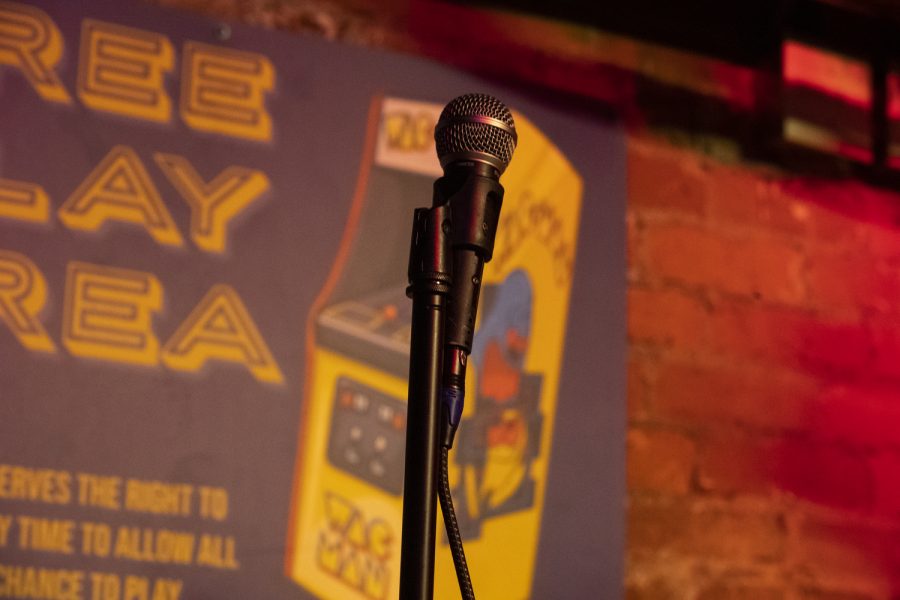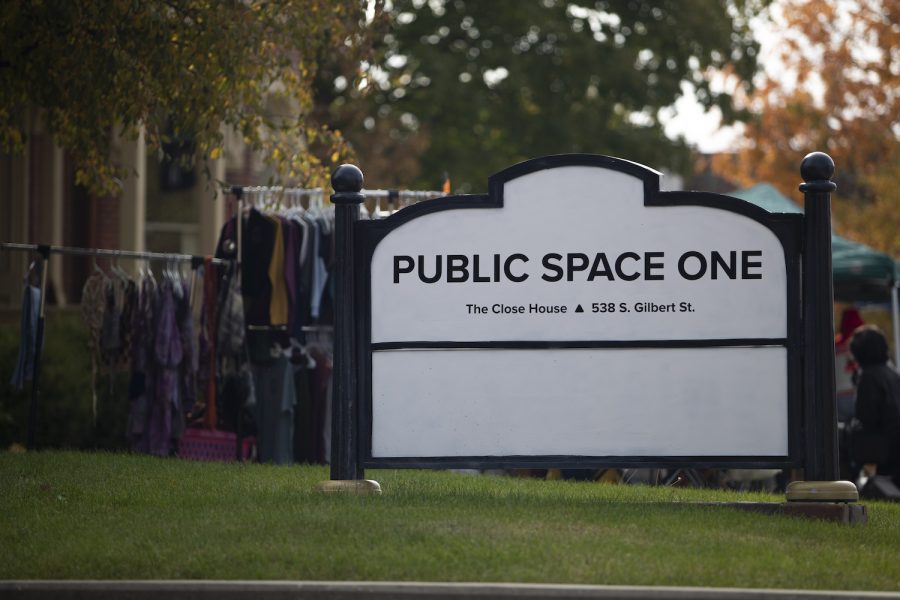That time of the year again: The women of Salt Lines are calling everyone with a uterus to throw up their hands, be proud of their childbearing hips, and embrace their oscillating emotions. It’s National Women’s History Month.
“Performing gives me the permission to be who I am,” said Denise Jolly, one of the four estrogen-fueled Salt Lines slam poets. “It’s about creating a safe space, universally.”
Salt Lines is a poetry-spewing quartet that toils and sweats on stages nationwide to address gender issues, as well as personal, cultural, and social histories. These performers have collectively appeared on HBO, CNN, MTV, BET, Oxygen, and UK Travel Networks.
The University of Iowa’s Lesbian, Gay, Bisexual, and Transgender Resource Center will host Salt Lines at 6 p.m. today in the IMU Black Box Theatre. Admission is free; all are welcome. Also, people may join the slam poets Friday for a free writing and performance workshop at 10 a.m. in the Iowa City Public Library Room A, 123 S. Linn St.
“Slam poetry on the page is not always that great to read,” said Elizabeth Krause, the manager of the Resource Center. “But performing it is when slam poetry really comes to life.”
She admits she generally shares a greater affinity toward poetry of the non-slam kind, and she knows that poetry runs the gamut.
“On one end of the spectrum, there’s the poetry that’s boring or embarrassing, like, ‘Why was that poem ever written?’ ” Krause said. “Or there’s the poetry that makes you sick to your stomach or elated … and after listening to it, you feel you have to move because the poetry is moving.”
Poetry’s use of metaphors can unlock emotional gates in people that everyday left-brain analysis cannot tap into, she said. Her theory, shared by many, is that incorporating the arts to discuss issues can generate a greater effect on the mind than merely attending a lecture.
For Jolly, poetry has helped her overcome the trauma of her past as a “violence survivor.”
“I definitely had reservations talking outwardly about my personal life,” she said. “But performing changed all that.”
Although the Salt Lines experience has a tendency toward impassioned storytelling, she said, the group has its element of comedy relief.
“Sonya [Renee] is also a violence survivor, but actually, she’s pretty hilarious,” Jolly said about her fellow slam poet. “Sonya tends to make the room laugh.”
Andrea Gibson, another Salt Lines performer, is a busy activist for queer rights and gay marriage.
She won the first-ever Women of the World Poetry Slam held in Detroit during March 2008.
The final member, Tara Hardy, spent 15 years working for the Battered Women’s Movement. She also founded the Seattle-based Bent writing institute for Lesbian, Gay, Bisexual, Transexual, Intersex, and Questioning/Queer people.
“We like to provide a social commentary,” Jolly said. “It causes audience members to think and ask questions in their own heads about these issues.”
She said the group has received a great deal of appreciation from audience members who confess struggles with similar personal or societal demons. In the last year, the women of Salt Lines held a discussion group at Lehigh University in Bethlehem, Pa., where the electric discussion moved a student to voice her homosexuality.
“It was her first time coming out to anyone,” Jolly said. “It was pretty amazing.”





